This week marked the 196th anniversary of the death of Maria Brontë, nee Branwell, mother of the Brontë sisters. She was a loving mother, an intelligent woman, pious (as we see from her article ‘The Advantages of Poverty in Religious Concerns’) and humorous as well (as we see in her courting letters to ‘saucy Pat’), but the great tragedy is that she died before she could see the fantastic contribution her daughters Anne, Emily and Charlotte would make. Their works of literature are loved across the world, and they have also been remembered on film and in fiction, and that’s what we’re going to look at today.
From the earliest days of film, the novels of the Brontë sisters have been adapted for the world of movie theatres. Emily Brontë’s Wuthering Heights first hit the silver, yet silent, screen in 1920, and just look at the huge crowds that gathered in Haworth to see it filmed:
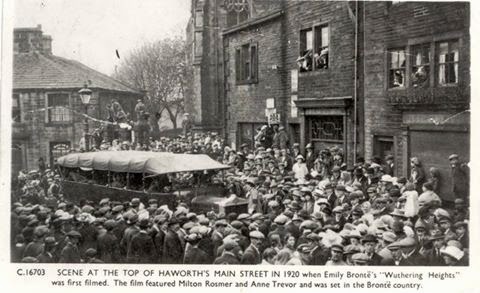
Despite that, in my opinion there has never been a truly classic Wuthering Heights movie. Lawrence Olivier and Merle Oberon brought true star quality, but I feel that Olivier was far too posh and refined as Heathcliff. Maybe things will change next year, as a new independently made version of Wuthering Heights is due to be released? It may lack the big budget, but if it has a big heart it should be well worth seeing.
Jane Eyre has fared better with its adaptations, and I particularly enjoyed the 2006 series starring Ruth Wilson as Jane and Toby Stephens as Rochester. Stephens has form in the Brontë stakes, as he turned in a great performance as Markham in the BBC’s The Tenant of Wildfell Hall in 1996, with the brilliant Tara Fitzgerald as Helen. It’s a series I watch again and again, and I like to think Anne Brontë would have approved of the series.
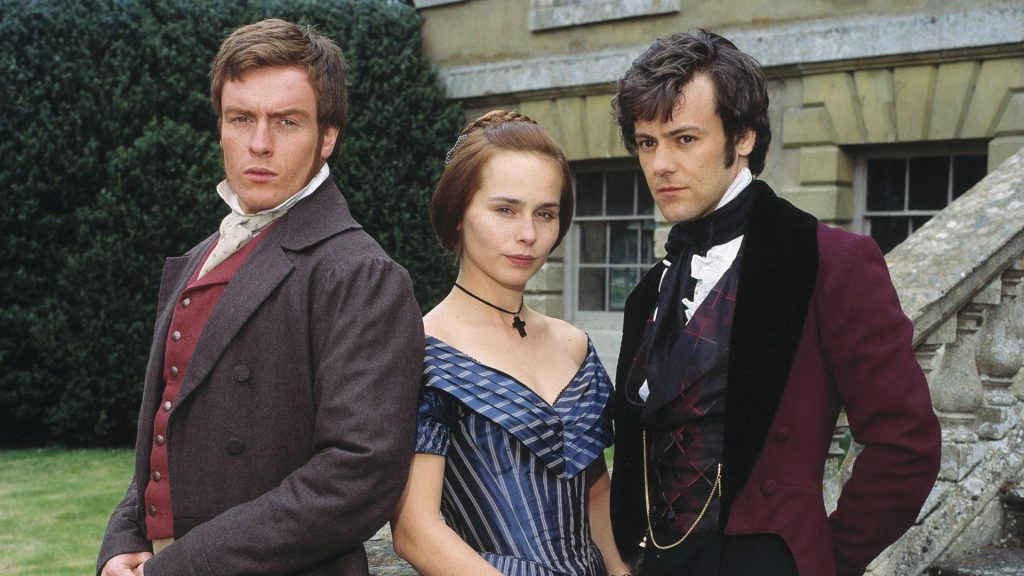
Of course it’s not just the books that have inspired film and TV producers but the lives of the Brontës themselves. Yorkshire Television, those were the days, paid tribute to the queens of their county with the 1973 series ‘The Brontës of Haworth’. Over five hours, its a superb in-depth and moving telling of the Brontë story that is well worth looking up.
It does focus rather too much on the Branwell element, however, and this can be levelled even more at last year’s To Walk Invisible. I really enjoyed Sally Wainwright’s show, it had great acting and the recreation of 19th century Haworth was incredible, but it had some faults: I didn’t mind the ending, as we headed into the modern day Brontë Parsonage Museum shop, but a friend went apoplectic at it; I certainly didn’t like the repeated use of the F-bomb, no matter how much people try to say otherwise, there was no way this particular word would have been used in conversation, it puzzles me as to why it was used when it added nothing to the story? Also, again, I didn’t like the way the story ended after Branwell’s death, Emily and Anne’s demise was mentioned in a caption at the end and Charlotte’s was ignored completely; the character of Arthur Bell Nicholls was introduced and then no further mention was made of him – it seemed to me that they had run out of time filming it, and that they would have been better extending it to another hour or a mini-series. Nevertheless, I did very much enjoy it.
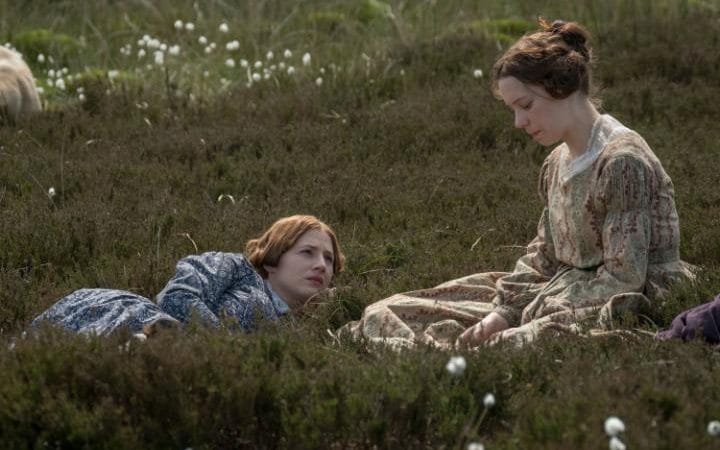
We are endlessly fascinated by the Brontë’s lives, something I certainly have to hold my hand up to, so it’s not surprising that there have been a number of fictional treatments of them in novels. The best of them can be very good, so I’m particularly looking forward to reading (once I’ve finished editing my forthcoming Aunt Branwell biography) two new editions to the canon. Firstly, we have ‘The Last Brontë: The Intimate Memoirs of Arthur Bell Nicholls‘ by S.R. Whitehead. Released at the start of this month it tells a story seldom heard: that of Charlotte’s husband Arthur. It already has excellent reviews.
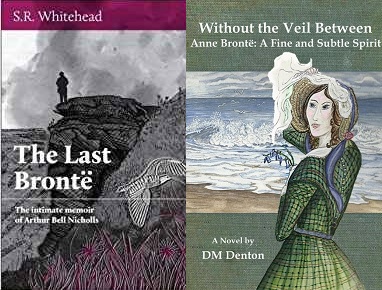
Crossing the Atlantic later this year we have D.M. Denton’s ‘Without The Veil Between – Anne Brontë: A Fine and Subtle Spirit’. It will be great to see Anne get the fictional treatment, and as Diane is both a Brontë enthusiast and a fine novelist I have high hopes for it.
Tomorrow I’m heading back to the archives to see a little known and very special piece of work by Anne Brontë, which I’m highly excited about, but today I’m going to relax in front of the television – now where’s that Tenant Of Wildfell Hall DVD again?
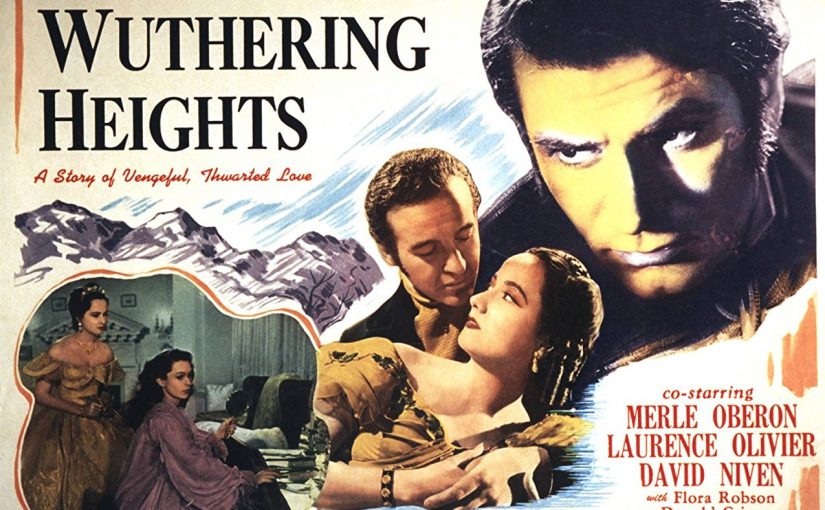
Thank you so much, Nick, for the kind words and posting about my upcoming Anne novel. (I have done five black and white illustrations for it, to correspond with each part of the novel and one for the end) I have SR Whitehead’s new novel on my kindle to read soon, and am so looking forward to your biography of Aunt Branwell. I so agree with many of the points you made about adaptations of Wuthering Heights and Jane Eyre and your praise and criticism of To Walk Invisible. Let’s hope this new Wuthering Heights manages to capture that elusive essence of Emily’s writing the others just haven’t done. Perhaps its small budget will play in its favor. I absolutely love the 1973 The Brontes of Haworth! Then there’s something raw and real – and unhurried – about those old series the slickness of today’s productions often lack. Well, happy editing! And hope you had a lovely relaxing day and enjoyed watching The Tenant … once again. Wouldn’t it be wonderful if someone made a movie/series of Agnes Grey? Thanks again and all the best.
Just reading The Life of Charlotte Bronte by Gaskell, after watching To Walk Invisible.
All very sad. The latter dwelt far too much on Branwell.
It started to become more interesting when the two sisters went to visit their publisher, in London. But didn’t follow this through.